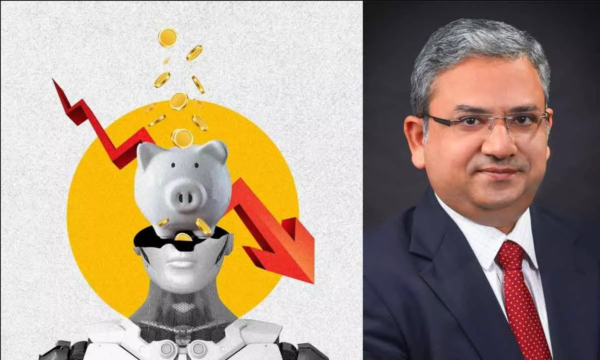The PE multiples on the public market have decreased. Because of the existing circumstance, multiples have decreased. Therefore, unicorns with large multiples are currently in doubt. Consequently, some unicorns may no longer be unicorns, while others may still be – Dinesh Goel, Principal at PE fund, Siana Capital Management, tells Bizz Buzz Bengaluru:
India may no longer be home to 100 unicorns, as fund managers believe that a number of unicorns have lost the coveted title due to a substantial decrease in valuation as a result of the funding crisis.
Unicorns are modern enterprises with a market capitalization of at least $1 billion. As a result of a succession of funding rounds in 2021 and 2022, the country became home to 100 unicorns in 2018. Many of these businesses are unable to raise additional capital from private equity (PE) and venture capital (VC) funds due to the onset of funding winter.

India has 100 unicorns; PE and VC funds can’t invest many businesses due to financial shortage.
“Multiples have decreased due to the current circumstance. Therefore, unicorns with large multiples are currently in doubt. The PE multiples on the public market have decreased. Consequently, some unicorns may no longer be unicorns, while others may continue to be,” Dinesh Goel, a partner at the private equity fund Siana Capital Management, told Biz Buzz.
“Those who continue to be unicorns do so for two reasons. As a result of their sound fundamentals, they merit high multiples. “Secondly, despite the decline in valuation, multibillion-dollar companies still qualify as unicorns,” he added. Seven unicorns in the edtech space are the first to lay off significant numbers of employees. Byju’s laid off more than 2,500 employees in the past year, while Unacademy laid off approximately 1,500 employees.
Similarly, upGrad laid off approximately 150 employees. More than 22,000 employees have lost their employment to date, with approximately 75 ventures reducing headcount. In many instances, multiple unicorns have been responsible for these departures.
India is home to one hundred Unicorns; many entrepreneurs are unable to raise additional capital from PE and VC funds due to a funding shortage.

As a global economic downturn approached, a Bain and Indian Venture and Alternative Capital Association (IVCA) study found that funding for Indian startups fell to $25.7 billion in 2022 from $38.5 billion in 2021.
In the January-March period of this year, private equity and venture capital funding decreased 60.5% to $6.64 billion from $16.8 billion a year earlier. Despite this funding deficiency, no unicorn has conducted a down round. A down round occurs when a startup raises funds at a lower valuation than its previous round.
According to reports, India’s most valuable startup Byju’s plans to raise $700 million in the coming days at a stable valuation. Many private equity (PE) and venture capital (VC) funds are currently resting on cash that is not being deployed, according to knowledgeable sources. As macroeconomic indicators improve, capital flows are likely to return in 2024.

